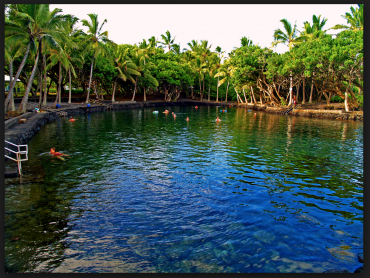
Leilani Estates 2018 Lava Flow
Address: Highway 130 and Leilani Avenue
From May to September, 2018 lava drained from Mauna Kea and Pu’u o’o crater drained out and a new rift zone opened toward the coast in Leilana Estates. A great video that is summarizes the activity was created by the USGS and can be viewed here:
https://www.nps.gov/havo/learn/photosmultimedia/videos.htm.
After September, 2018 the activity is over, but there are interesting steam vents and up close road closures to witness. You will see many “No Trespassing” signes, but use your judgement. If you are simply staying on a public road closer to the flow, nobody is going to get excited.
Stop 1: End of Highway 132 and Lava Tree National Monument
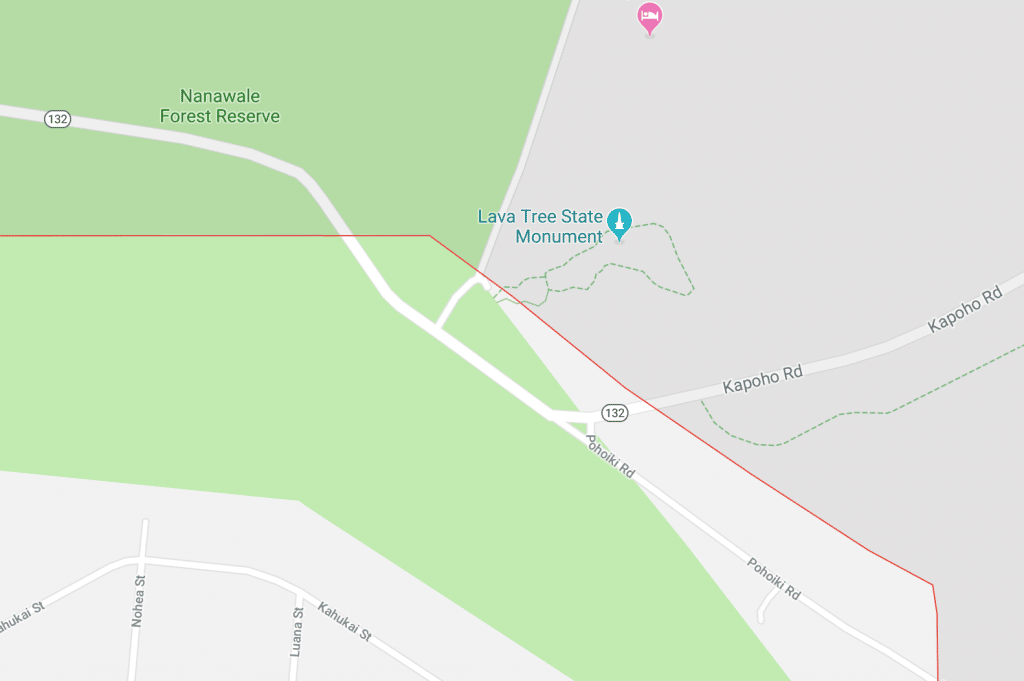
As you head down highway 130 after Pahoa you will turn left on highway 132. This was the road that used to take to down to the coast and south along the coast to the popular Champagne Ponds tide pools. The lava blocked out huge blocks of this highway with a 20 foot tall lava river. Simply head down 132 about 5 miles and it ends.
Here is a picture:
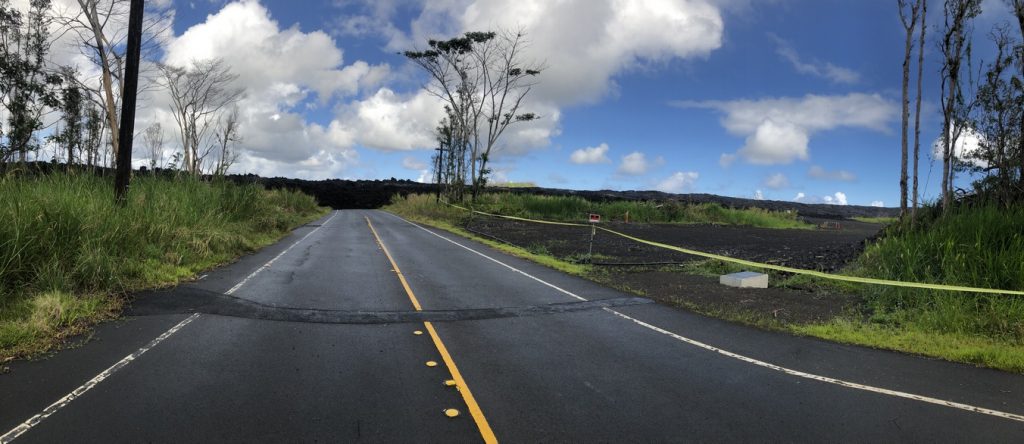
This is a park deep in Pahoa for those that are looking to spend the time to travel to this area. This pool isn’t high on my list and I only recommend stopping by if you are staying a week or more and want to spend a full day visiting the lave flows in Kalapana and have extra time to take the long way home along the coast on Highway 137. It is also convenient if you are traveling to the boat landing at Isaac Hale landing to see the lave flow and are nearby.
If you are expecting a sauna type warm pond you will be disappointed. It is somewhat warm depending on the tide, but you may not notice any difference at all. I am also bothered by the fact that there aren’t toilet facilities conveniently where they should be so it is going to be used by young swimmers as a large toilet. That said, the pool is pretty, I just wouldn’t bother jumping in. It is quite interesting that you are witnessing a lava warmed spring. It is based on the fact that the lava rock you see is a sponge. There are no rivers in this part of the Island because the water soaks right into the rock. This is despite hundreds of inches a year of rain. Where does this water go after it sinks into the rock? It seeps out into the ocean at a very quick rate. Here, the hot lava system is close enough to the surface to warm the water seeping into this area. That’s pretty cool.
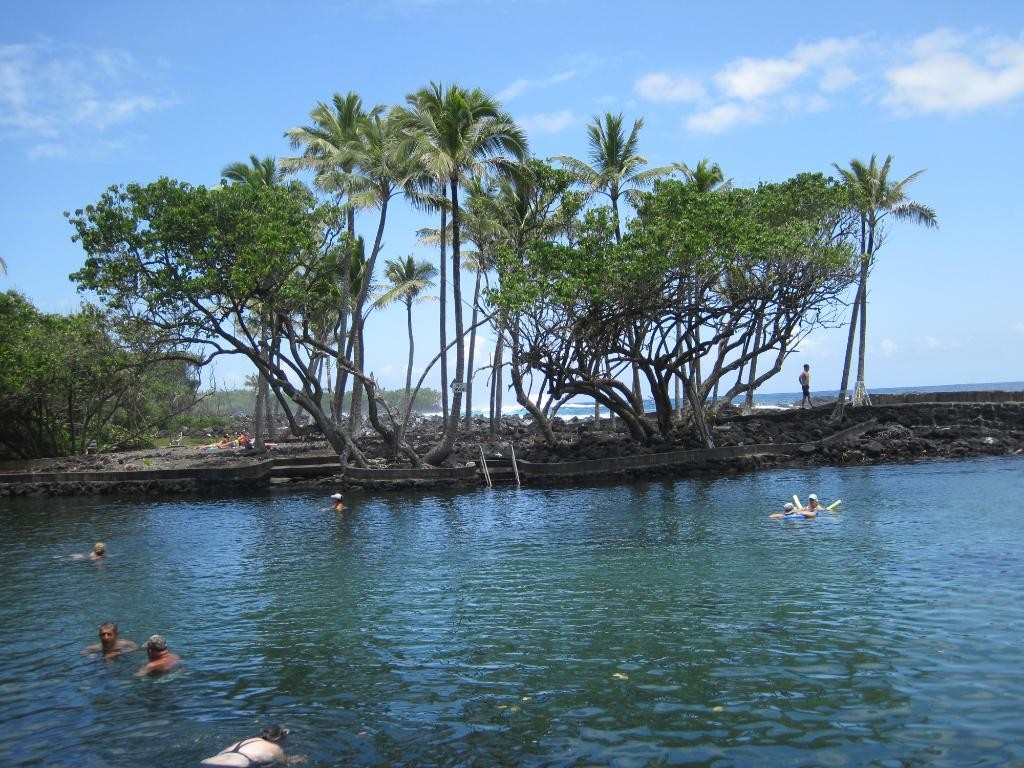



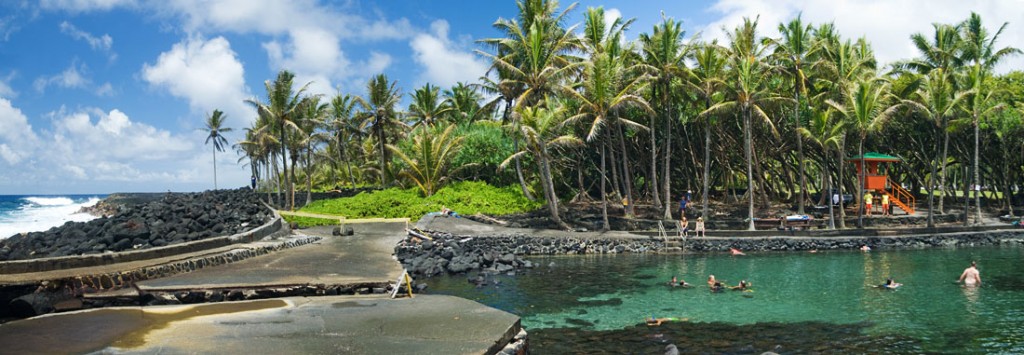
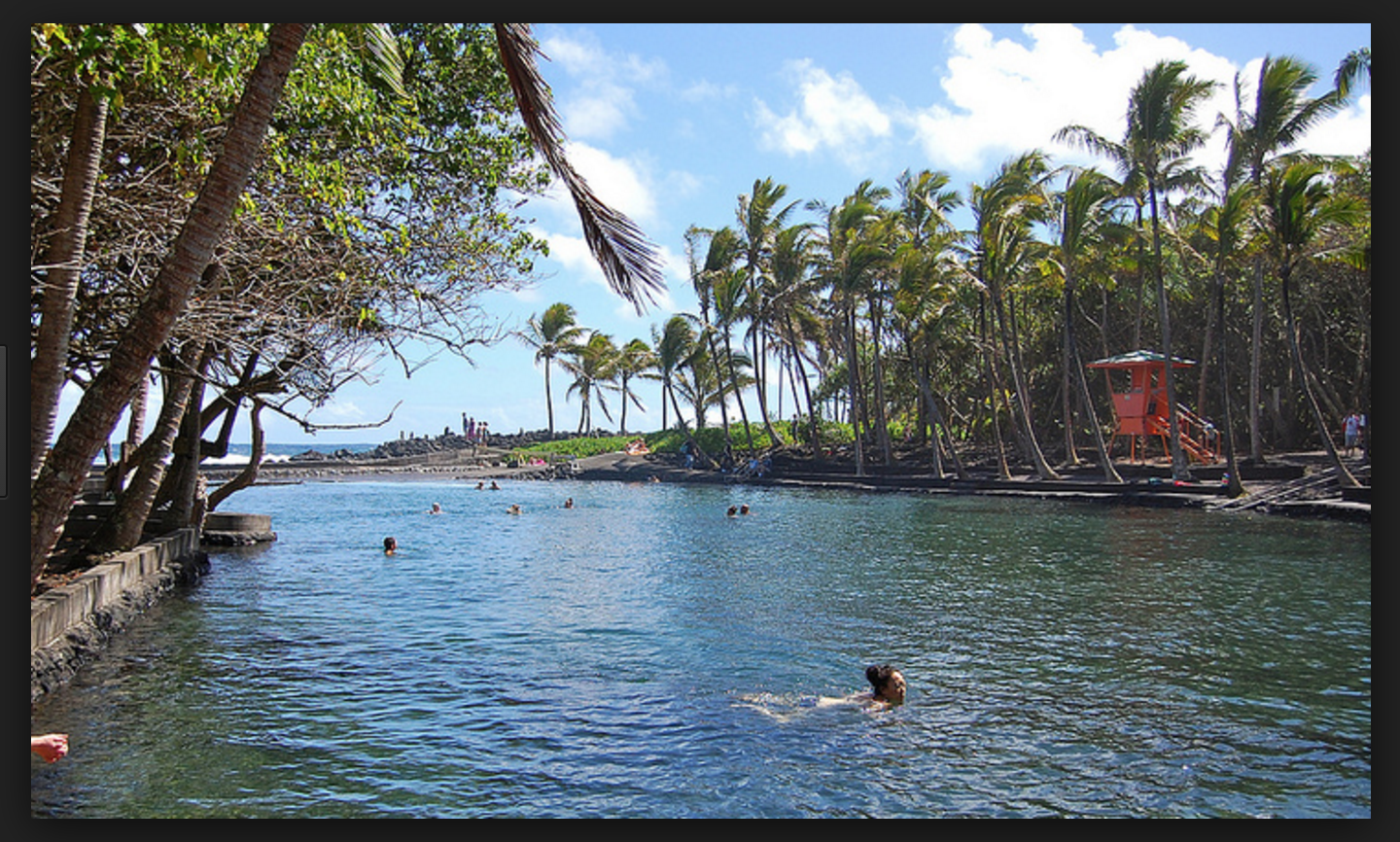
 Home
Home
 Richard Standke
Richard Standke
 (818) 357 - 6889
(818) 357 - 6889
